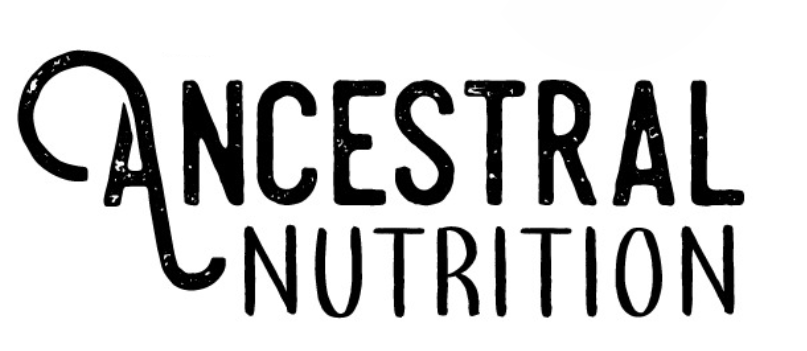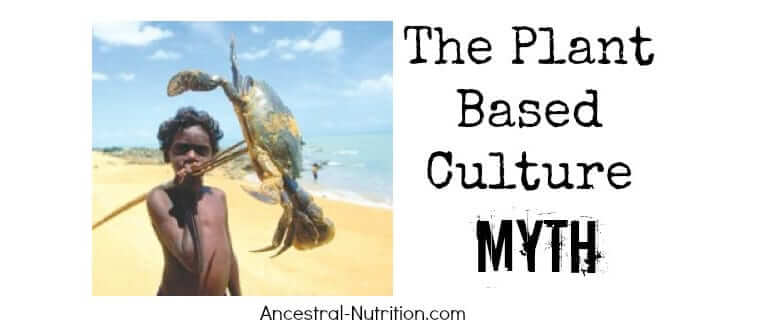From the time I became a vegetarian and started paying attention to food politics, there seems to be this perpetual ideaof plant based cultures.
Or at least cultures that mostly rely on “plant-based foods” are healthier than meat-eating cultures. The first issue I take with this, and it was not something I clearly understood when I was vegetarian, is that there are no vegetarian cultures. None, ever, have existed in human history. Some cultures in India (among other places) are vegetarian for religious reasons, though also have the highest rate of coronary artery disease,
Both overseas and resident Indians have the highest rates of CAD, although almost half of them are life-long vegetarians. When compared to Whites, Blacks, Hispanics and other Asians, CAD rates among Indians worldwide are two to four times higher at all ages and five to ten times higher in those < 40 years of age. Source
The idea that “vegetarian cultures” display less incidence of chronic disease is a complete fallacy.
We evolved eating meat, which is why I think it’s so hilarious when people call paleo or a basic ancestral diet a fad. Yes, in 2.6 million years people will develop an entirely new way of eating. Vegetarian is clearly the way to go now, the millions of years we relied on animals be damned.
Australopithecines like Lucy grew brains to our current size because meat let our digestive systems shrink, freeing up energy for a bigger brain. In fact, our brains are twice as large as they should be for a primate our size … and our digestive system is 60 percent smaller.
Consider gorillas. They are vegetarians and have the smallest brains and largest digestive systems of any primate. The exact opposite of humans. It’s our large brains that need the energy that only meat and a small digestive system can provide.
and this:
Truth is, we’ve been eating meat for millions of years, without interruption. At no time have we ever stopped. And so has EVERY culture known to man. Research shows that of over 150 native cultures studied, not one of them was vegetarian.
In The Vegetarian Myth, Lierre Keith writes,
“Australopithecine was eating grass-fed animals, the large ruminants swaddled in savanna. Stone tools have laid beside the bones of long-extinct animals, buried in the silence of time, for 2.6 million years.”
Which leads me to the work of Dr. Weston A. Price.
Dr. Price was a dentist who traveled the world with his wife for nearly 10 years studying cultures that were untouched by modern civilization. They still ate the diets of their ancestors, and they were the closest thing to our ancestors that were able to be studied. He wrote Nutrition and Physical Degeneration, which was published in 1939. Though Dr. Price studied how these cultures remained immune to dental caries, he quickly realized they were also immune to several of our modern diseases, including heart disease, diabetes, cancer, depression, and obesity. He found that when these cultures were introduced to modern foods like sugar, white flour, and vegetable oils, not only did their incidence of dental caries increase, often to over 50% (when they were usually under 1% in the natives following their ancestral diet) but their overall health declined. The result was obesity, cancer and heart disease. This was proved time and time again. In each culture, the natives were vibrant and healthy, while those eating refined foods experienced declining health.
What particularly interests me about the work of Dr. Price’s is what these people were eating (and not eating).
The healthiest cultures heavily relied on animal foods, from either wild seafood and/or wild or grass-fed animals. If they ate grains or legumes, they were first fermented, soaked or sprouted to reduce the phytic acid content. They were in tune with nature and their surroundings. Each culture had strayed very little from their ancestral roots.
“The Eskimo, living on until today, brings us a robust sample of the Stone Age people…The Eskimo race has remained true to ancestral type to give us a living demonstration of what Nature can do in the building of a race competent to withstand for thousands of years the rigors of an Arctic climate.” Pg 55
And what did the Eskimos eat? A LOT of fat, it turns out.
If saturated fat causes heart disease, these people are not proof of it.
“Seal oil provides a very important part of their nutrition. At each piece of fish broken off, it is dipped in seal oil. I obtained some seal oil from them and brought it to my laboratory for analyzing its vitamin content. It proved to be one of the richest foods in vitamin A that I have found…The fish are hung on racks in the wind for drying. Fish eggs are also spread out to dry. These foods constitute a very important part of the nutrition of the small children after they are weaned.” Pg 64
“The food of these Eskimos in their native state includes caribou, ground nuts, kelp, berries including cranberries, blossoms of flowers preserved in seal oil, sorrel grass preserved in seal oil, and quantities of frozen fish. Another important food factor consists of the organs of the large animals of the sea, including certain layers of the skin of whale, which has been found to be very high in vitamin C.” P 65
These are some of the healthiest people in the world, and they are eating a diet extremely high in animal fat and protein. Yet, obesity, diabetes, heart disease and tooth decay are of no concern to them.
Dr. Price also traveled to Africa to study several tribes. One of which was the Masai. Like the Eskimos, they were free of our modern diseases and described as a tall and extremely strong race.
“For their food throughout the centuries they have depended very largely on milk, meat and blood, reinforced with vegetables and fruits…The defibrinated blood is used raw, just as the milk, except in smaller quantities. When available, each growing child receives a day’s ration of the blood, as does each pregnant or lactating woman…These three sources, milk, meat and blood provide them with liberal supplies of body-building minerals and the special vitamins, both fat soluble and water soluble.” Pg 123
His travels took him to Uganda, to the Muhima Tribe.
“They, like the Masai are primarily a cattle raising people and live on milk, blood, and meat…Like the Masai, they are tall and courageous…Like other primitive cattle people, they dominate the adjoining tribes. In a study of 1,040 teeth of 37 individuals, not a single tooth was found with dental caries.”
And while Dr. Price did not discover a single culture that relied entirely on plant foods (though he tried).
He came closest with the Kikuyu Tribe in Kiambu, Kenya.
“In contrast with the Masai, the Kikuyu tribe, which inhabits a district to the west and north of the Masai, are characterized by being primarily an agricultural people. Their chief articles of diet are sweet potatoes, corn, beans and some bananas, millet, and Kafir corn…They are not as as tall as the Masai and physically they are much less rugged.” Pg 125
As well as some Ethiopian tribes that relied largely on plant foods,
“Several of the tribes neighboring Ethiopia are agriculturalists and grow corn, beans millet, sweet potatoes, bananas, Kafir corn, and other grains, as their chief articles of food. Physically, they are not as well built as either the tribes using dairy products liberally or those using fish from the fresh water lakes and streams. They have been dominated because they possess less courage and resourcefulness.” pg 127
To recap, these cultures were still living and eating the way their ancestors did, relying on animals for their nourishment.
The tribes that relied on plant foods for their nourishment were less developed and not as well built. Got it.
One of the most interesting tribes to me are the Neurs, along with the Nile. They ate mostly milk, blood, and meat from pastured animals, and grew to be extremely tall. It was not uncommon for women to be over six feet tall, and the men seven feet, often reaching seven and a half feet tall. They were also highly immune to dental caries, almost one hundred percent. What set them apart dietetically was their consumption of liver. They believe the soul resides in the liver, so they revered the liver of animals, so much so that they wouldn’t even touch it with their hands, only with their spears. It was eaten both raw and cooked. Gram for gram, the liver is the most nutritious food on earth.
The native Maori of New Zealand has had the reputation of having the finest teeth and bodies in the world (or they did, prior to adopting a modern diet). Only about one tooth per thousand had been attacked by decay according to Dr. Price’s findings. And what did the Maori eat? By now you might notice this is becoming a theme.
“It was particularly instructive to observe the diligence with which some of the isolated Maori near the coast sought out certain types of food in accordance with the tradition and accumulated wisdom of their tribes. As among the various archipelagos and island dwellers of the Pacific, great emphasis was placed on shell fish.” Pg. 189
That’s probably because shellfish are some of the most nutrient-dense food Mother Nature has gifted us.
None of the cultures ate refined foods. None ate soy or vegetable oils.
None ate refined sugar or any genetically modified foods. While the diets differed based on their geographic location and what was available to them, they all had several things in common. They ate vegetables. They ate animals. They revered seafood and liver. And when these are analyzed, animal foods, particularly seafood and liver, they are the most nutrient dense foods we can eat. More nutritious than any vegetable (not to hate on veggies).
It is important to recognize the impact food has on our health.
People do not get cavities or cancer or diabetes by chance. These are modern diseases, and they are caused largely by what we eat. It is no coincidence that the people eating diets of unrefined foods did not suffer these ailments, while the people eating modern foods did. When studying the Australian Aborigines, Price noted,
“The cook on the boat was an aboriginal Australian from northern Australia. He had been trained on a military craft as a dietitian. Nearly all his teeth were lost. It is of interest that while the native Aborigines had relatively perfect teeth, this man who was a trained dietitian for the whites had lost nearly all his teeth from tooth decay and pyorrhea.” Pg 160
Yet another reason I chose to not become a registered dietitian, they’ve got it all wrong.
The myth that fat is bad, soy is good and plant-based diets are healthy is pervasive, is dangerous and is completely lacking in evidence to back it up. Price studied 14 indigenous cultures, the natives living off of diets predetermined by their ancestors had none of the diseases or health ailments that plague current cultures. And they all revered animal products for their nutrient density. The same can not be said for vegetarian cultures because they do not exist. Plant-based diets are a new and trendy way of eating, that no culture has ever successfully adhered to. This idea that completely changing the way we have evolved to eat as humans is somehow more successful, both on a health and environmental scale is ridiculous and unfounded.
“If primitive races have been more efficient than modernized groups in the matter of preventing degenerative processes, physical, mental and moral, it is only because they have been more efficient in complying with nature’s laws.”
To all the readers intent on implementing a vegetarian diet, I get it.
I gave it five years and my health. I know that there is the good intention behind the decision. If you choose to adhere to a vegetarian diet, make sure you are eating whole foods. Soy is not a whole food. Bread is not a whole food. Sugar and vegetable oils are not whole foods. Soak the grains and legumes if you can, to reduce the phytic acid content. Eat coconut oil every day for its anti-viral and anti-microbial properties as well as the saturated fat content. And whatever you do, buy locally. Because buying all of those grains, soy and vegetable oils is destroying not only your health but the environment.
And read this quote from one of my heroines, Lierre Keith, author of The Vegetarian Myth,
This misunderstanding is born of ignorance, an ignorance that runs the length and breadth of the vegetarian myth, through the nature of agriculture and ending in the nature of life. We are urban industrialists, and we don’t know the origins of our food. This includes vegetarians, despite their claims to the truth. It included me, too, for twenty years. Anyone who ate meat was in denial; only I had faced the facts. Certainly, most people who consume factory-farmed meat have never asked what died and how it died. But frankly, neither have most vegetarians.
The truth is that agriculture is the most destructive thing humans have done to the planet, and more of the same won’t save us. The truth is that agriculture requires the wholesale destruction of entire ecosystems. The truth is also that life isn’t possible without death, that no matter what you eat, someone has to die to feed you.
I want a full accounting, an accounting that goes way beyond what’s dead on your plate. I’m asking about everything that died in the process, everything that was killed to get that food onto your plate. That’s the more radical question, and it’s the only question that will produce the truth. How many rivers were dammed and drained, how many prairies plowed and forests pulled down, how much topsoil turned to dust and blown into ghosts? I want to know about all the species – not just the individuals, but the entire species – the Chinook, the bison, the grasshopper sparrows, the grey wolves. And I want more than just the number of dead and gone. I want them back.




